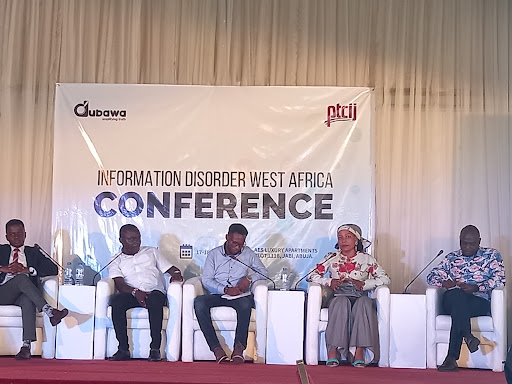Information Hoarding Exacerbating Security Crises In Africa
Academic scholars say information disorder is hampering efforts to tackle security challenges in Africa.

Lack of timely information or secrecy of information by the military and the intelligence community is worsening efforts to tackle security crises in Africa, communications experts have said.
Rashid Gbambu, a postgraduate researcher at the University for Development Studies, Ghana and fellow at Dubawa, Nigeria’s leading fact-checking platform, said national security management depends on information flow and security operatives’ dedication and their ability to timely counter any threat, both internal and external that can jeopardise the state.
“When there is a dearth of timely information either in intelligence gathering or arresting a crisis, the implication of that is information disorder where there is a rapid spread of false information by the new media (online platforms) with traditional media platforms jumping on the trend,” Gbambu said during the two-day Information Disorder West Africa Conference held by Dubawa in Abuja, Nigeria’s capital on Wednesday, Nov. 17 and Thursday, Nov. 18.
“This disorder undermines the value of information as a core strategic instrument in national security governance. While national security depends, among other factors, on open-source intelligence in managing risks, fake news in the media does not only heighten this risk, it poses a threat, thus complicating the tasks of the national security apparatus.”
In his research findings on the implication of information disorder on national security in three West African countries including Nigeria, Gbambu said one outstanding motive of terror groups is to mislead the public, distract the government, and divert the attention on national security from their targets.
But national security, he said, should be about intelligence gathering on the activities of belligerence and acting swiftly to thwart their efforts before they strike.
HumAngle had earlier analysed how underutilisation of Nigeria’s intelligence community is evident in the absence of robust predictive modelling for identifying security challenges, especially in the 12-year-old combat with Boko Haram insurgents in the Northeast and a growing trove of criminal gangs in the Northwest.
Other findings
Gbambu said misinformation and disinformation from government and security authorities seemed to be a higher concern within the media ecosystem.
“We discovered that there has been a high level of ignorance and no media literacy among the populace which the authorities capitalise on. They peddle disinformation in the system; this affects all security actors including national security apparatus, the media and the citizens who are the victims.”
In her submission, Ganiyat Adenle, a lecturer of Gender Studies at the Lagos State University (LASU) and Dubawa fellow, said the military must reconsider its communication and information dissemination strategies to accommodate media accuracy.
Adenle cited the example of how the Nigerian army had initially denied shooting live rounds at anti-police brutality protesters at Lekki Tollgate, Lagos, in Oct. 2020. Still, a government panel’s report found the army complicit in committing a massacre that killed at least 11 people.
She, however, implored journalists to uphold media integrity in their reports.
For Francis Sowa, another postgraduate fellowship researcher with Dubawa from Sierra Leone, public trust in the media is reducing. The media should be “inoculated” for it to perform well in the aspect of accuracy,
Support Our Journalism
There are millions of ordinary people affected by conflict in Africa whose stories are missing in the mainstream media. HumAngle is determined to tell those challenging and under-reported stories, hoping that the people impacted by these conflicts will find the safety and security they deserve.
To ensure that we continue to provide public service coverage, we have a small favour to ask you. We want you to be part of our journalistic endeavour by contributing a token to us.
Your donation will further promote a robust, free, and independent media.
Donate HereStay Closer To The Stories That Matter




